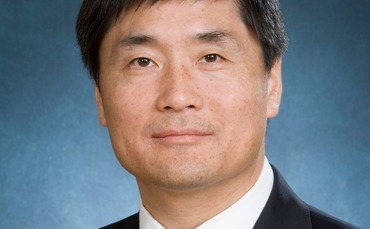
Q&A: KKR's David Liu and Ming Lu
David Liu and Ming Lu, who head up KKR’s private equity operations in Asia, discuss dislocation in China and its neighboring markets, engineering cross-border deal flow, and how GPs can differentiate themselves
David Liu and Ming Lu serve as co-heads of Asia private equity for KKR. In their roles, they are jointly responsible for the overall strategy and implementation of KKR's Asia private equity funds.
Q: What does the current volatility in China mean for private equity?
DL: The economy has been quite soft for two years. From our perspective, this painful restructuring is better for China in the long term. The government needs to restructure the economy and address some of the excess capacity and overspending that has built up. This kind of market dislocation can create investment opportunities for long-term investors who are value-oriented and operationally focused. You have to focus on proprietary deal sourcing by leveraging deep industry knowledge; you have to be disciplined in your due diligence without following markets' flavors of the day. And finally, you need to be extremely operationally focused when working with portfolio companies. We have committed approximately $1.5 billion in equity across all our platforms in China in 2014 and the first three quarters of 2015. That represents one of the most active two-year periods we've had in the country. We also took advantage of the market peaking earlier in the year and distributed across all platforms close to $1.5 billion from China deals to LPs over the same time period.
Q: To what extent is the distressed investment platform KKR will set up with China Orient Asset Management and China Orient Summit Capital an example of targeting this dislocation?
DL: We set up that platform because we see interesting special situations-related opportunities in real estate and related sectors, and it is one of the many initiatives we are pursuing. At the same time, dislocation potentially means more attractive valuations. When the public markets are not doing well, private equity becomes a more important source of capital to support growth. But more importantly, in some of the industries we've been focusing on - such as food safety, environmental services, healthcare, and education - the returns are not predicated on whether China's GDP growth is 7% or 5%. Those industries have stronger fundamental demand to support growth. The key is to find interesting sector themes, back strong management teams, and work closely with them to create value.
Q: What impact is the China slowdown having on other the investment environment in other Asian markets?
ML: China's structural slowdown has come at a time when there is excessive corporate leverage throughout many markets. We are going into a multi-year credit cycle that will involve significant deleveraging, particularly for the banking and corporate sectors. We are already seeing increased foreign exchange market volatility due to rising US dollar interest rates and increased pressure on the renminbi to depreciate and emerging market companies are trading at 7.5 P/E [price-to-earnings], which is a significant discount to developed markets. That is the major dislocation. The China slowdown is also part of an economic transformation from fixed-asset and investment-led growth to consumption and services-driven growth. This process will pose challenges to a number of sectors in many markets - for example, the resource sector in Indonesia and Australia have been hit and Japanese and Korean manufacturers that used to be part of China's export supply chain have been impacted - but it also creates opportunities. There is a tourism boom in adjacent countries to China, while businesses that cater to Chinese demand for high-end goods and services are in great demand.
Q: Panasonic Healthcare and Haier - of which KKR is owner and minority shareholder, respectively - have both completed cross-border bolt-on acquisitions. Do you expect to see more of this?
ML: Panasonic Healthcare delivers on a number of investment themes for us. It is a carve-out of a very attractive business but a non-core subsidiary of Japanese corporate. It is also a global manufacturer of healthcare products. What the company needs is a global marketing organization to expand its customer base, and they saw this synergistic opportunity to acquire Bayer's diabetes care business as a way to gain these capabilities. We helped them achieve that goal by leveraging our global network. We expect to see more of these situations in Asia. There are many corporations with non-core assets that have the opportunity to be spun out at some point.
DL: Haier as a national champion in China does not need our capital. They wanted to partner with us because of the relationship we have built with them and the strategic value we can bring beyond the capital we provide. Having a foreign long-term partner like us where we can bring our global network and local expertise to the table differentiates Haier from other local players. Cross-border acquisitions are not easy to execute anywhere in the world, but having a partner like us that brings global experience and expertise can increase the probability of success.
Q: How does the operational focus change when you are dealing with emerging markets companies that may not have experienced a slower growth environment?
DL: When strong economic growth was at your back you could focus on top-line growth and there was quite a lot of low-hanging fruit. In the current environment, management really has to sharpen up its operational discipline to drive differentiated performance. This means focusing not only on top-line growth but also procurement cost reductions, and making supply chains and working capital management more efficient. Our China portfolio delivered double-digit EBITDA growth well into 2015, with EBITDA growth meaningfully exceeding revenue growth. That comes from the operational initiatives we have introduced.

Q: You have mentioned several sectors in which you see long-term opportunities in China. What about for the region as a whole?
ML: We try to take a thematic approach to identifying our priority industries, and determining how we can apply KKR's relevant experience across geographies to pivot toward the most attractive opportunities. Our key themes include food safety and agriculture, as we've seen problems in a number of countries across Asia in recent years. There's health care, which might address supply-demand imbalances in emerging markets or demographic changes in developed ones. Financial services is also interesting given the increasing sophistication of Asian financial markets, and we see opportunities in environmental businesses to provide solutions to issues such as poor air, water and soil quality.
Q: A lot of investment in financial services seems to target internet-enabled disruption of established models. How does this factor into your assessment of the sector?
DL: The landscape is changing rapidly and e-commerce is making meaningful impacts. The internet is ultimately a business tool; it helps businesses enhance productivity, efficiency and scalability. When we evaluate any business, including an internet business, we focus on the same key issues such as long term business fundamentals and management capabilities. While short term evaluation matrix may vary, you have to understand the long-term business fundamentals, whether it is online or offline businesses. Over the long term, ultimately these companies all have to be profitable and generate attractive ROE [return on equity] to justify a sound investment.
Q: The acquisition of GE's Australia and New Zealand consumer finance business last year was KKR's largest-ever buyout in Asia. Will deals continue to grow in size?
ML: If you look over the last 10 years, deal size has been creeping up because economies and companies continue to grow. We expect this trend to continue given the growing economies in Asia and increasing PE penetration. But if you look at the distribution of deal size, it remains the same - the extremely larger deals represent a small portion of total deal flow. I don't see these deals as the mainstay, and our activities are more theme-driven and value-driven than size-driven.
Q: You've already mentioned the distributions from China over the last two years. How is the overall Asia portfolio looking?
DL: We distributed $5 billion in PE in 2014 and through the first three quarters of 2015, with a large portion of that distributed in 2015. We have returned approximately 90% of our total invested capital in Asia - so we have significantly de-risked the portfolio - and we still have significant stakes in the ground for future upside. Trade sales have accounted for the larger portion of fully exited portfolios and we are definitely seeing more strategic interest in Asia. Given the public market volatility, strategic exits are going to be more and more prevalent, especially for control deals.
ML: We have seen Asian strategic investors taking up a large part of our trade sale activity, whereas it used to be companies from North America and Europe. In our recent exit from Masan Consumer Corp. we sold our stake back to the group founder, but that group founder was receiving investment from a Thai strategic buyer.
Latest News
Asian GPs slow implementation of ESG policies - survey
Asia-based private equity firms are assigning more dedicated resources to environment, social, and governance (ESG) programmes, but policy changes have slowed in the past 12 months, in part due to concerns raised internally and by LPs, according to a...
Singapore fintech start-up LXA gets $10m seed round
New Enterprise Associates (NEA) has led a USD 10m seed round for Singapore’s LXA, a financial technology start-up launched by a former Asia senior executive at The Blackstone Group.
India's InCred announces $60m round, claims unicorn status
Indian non-bank lender InCred Financial Services said it has received INR 5bn (USD 60m) at a valuation of at least USD 1bn from unnamed investors including “a global private equity fund.”
Insight leads $50m round for Australia's Roller
Insight Partners has led a USD 50m round for Australia’s Roller, a venue management software provider specializing in family fun parks.





